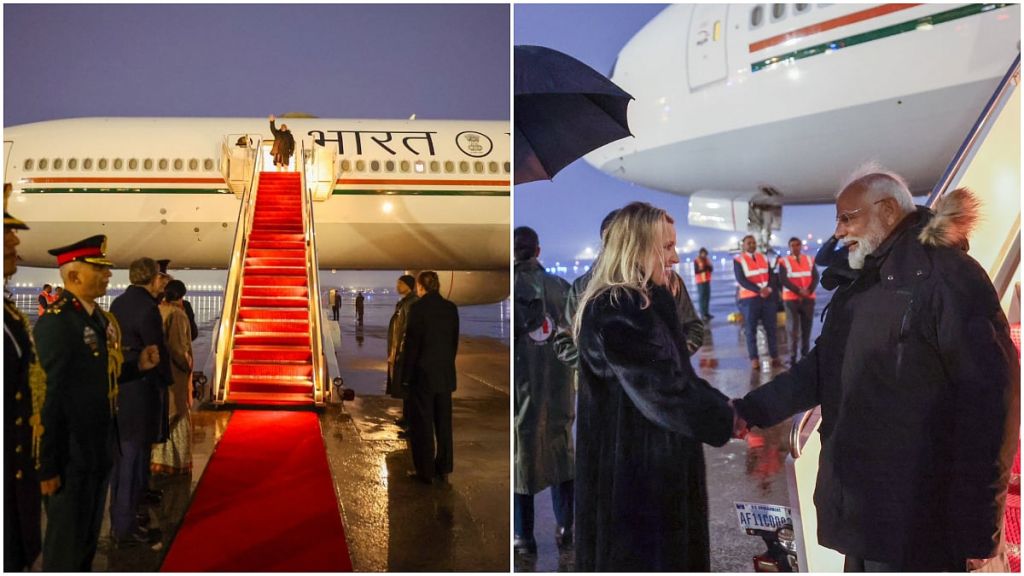
Prime Minister Narendra Modi meets President Donald Trump today in Washington. He will be the fourth leader meeting the newly re-elected president, after those of Israel, Japan and Jordan. So far, India has avoided getting targeted by Trump, adopting an overly aggressive and disruptive approach, domestically and abroad.
The two issues that would dominate Trump’s agenda are trade and immigration. He has repeatedly raked up high Indian tariffs, often exaggerating the numbers. Also, Indians are the largest illegal immigrants’ group, barring those from Latin America, numbering 700,000.
Both these elements are in play before the Prime Minister’s Washington visit. A US military plane landing at Amritsar with 100 shackled and handcuffed Indian men, women and children caused a massive backlash. Similarly, the 25% tariffs imposed on aluminium and steel imports affect India, which, last year, exported over $1 billion worth of aluminium to America.
The three leaders, who met Trump before PM Narendra Modi, reflect Trump’s priorities. Japan is a US ally, critical to containing China. With Australia, it completes the QUAD group, alongside India and the US. Japanese Prime Minister Shigeru Ishiba successfully rekindled the kind of bonhomie that late Shinzo Abe had developed with President Trump.
He addressed Trump’s real and fanciful concerns, including closing the $69 billion trade deficit. On the other hand, Japan committed to invest $1 trillion in the US and buy more liquified natural gas. In return, Japan got reassurances on its security concerns about China, North Korea and Russia. Thus, Trump is best handled by presenting him a public win, although some of what Japan committed was already underway.
Israeli prime minister Benjamin Netanyahu’s visit led to Trump announcing his bizarre plan to depopulate Gaza by moving its 2 million-strong Palestinian population to Jordan and Egypt. Both nations promptly rejected the proposal. Others followed, like prominent Arab nations and the Arab League. With President Trump continuing to dangle his Gaza plan, a visit by Jordan’s King Abdullah became inevitable.
King Abdullah also played his cards deftly, neither offending Trump by quarrelling publicly nor basically conceding Trump’s irrational demands. Jordan gets $1.5 billion in US aid annually, but over half of its 12 million population consists of East Bank Palestinians. In fact, his own wife, Queen Rania, has Palestinian lineage.
King Abdullah offered to admit 2000 sick children from Gaza, cleverly combining a charitable move towards Palestinians with notionally conceding Trump’s demand. In private, he apparently pushed back hard, explaining that forcibly uprooting Gaza Palestinians from their homes and inducting them in a neighbouring Arab nation could cause domestic turmoil in those nations, possibly including regime changes.
Israeli newspaper Haaretz wrote that there is no magic solution, especially when it encompasses ethnic cleansing and likely war crimes. Columnist Thomas Friedman, in the New York Times, debunked the plan as reflecting the perspectives of Israel’s far-right and America’s evangelical Christians.
Major European powers like France, Germany and the UK, as well as China and prominent global South members such as Brazil and South Africa, condemned the Gaza plan. India has remained silent, both due to ideological affinity with the Israeli prime minister, and the desire not to offend President Trump because of the upcoming Trump-Modi meeting.
India is likely to emulate Japan by protecting core interests, involving technology transfer and trade relations, while presenting Trump some wins by quietly accepting deported Indian nationals and lowering tariffs on select US products. The US may seek to restrict India’s defence and energy relations with Russia, employing the carrot and the stick. At the recent Bengaluru air show, both America’s premier fighter aircraft, F-35, and Russia’s latest stealth-fighter aircraft, the S-57, performed aerial acrobatics. Russia has cleverly offered that plane’s engine for upgrading the Indian fleet of Sukhois.
The devil, they say, is in the details. How shrewdly India tackles Trump would determine the path of Indo-US relations. If the core elements of trade relations and technology transfers can be protected, Indian diplomacy would have scored a win. If Trump goes off-track and makes future relations dependent on India distancing itself from Russia and Iran, then a stumble follows. But India has to be seen protesting the US methodology for deporting illegals.
Like Colombia, India must ensure the return of Indians with dignity, if necessary, on Indian planes. Arguing that the government owes the deportees is not wrong. The US, in 1986, regularised most illegal aliens by legislation. Thus, the Indian diaspora has many erstwhile illegals. New aspirants saw this route to regularisation. The correct question is: why are folks gambling wealth to escape India?